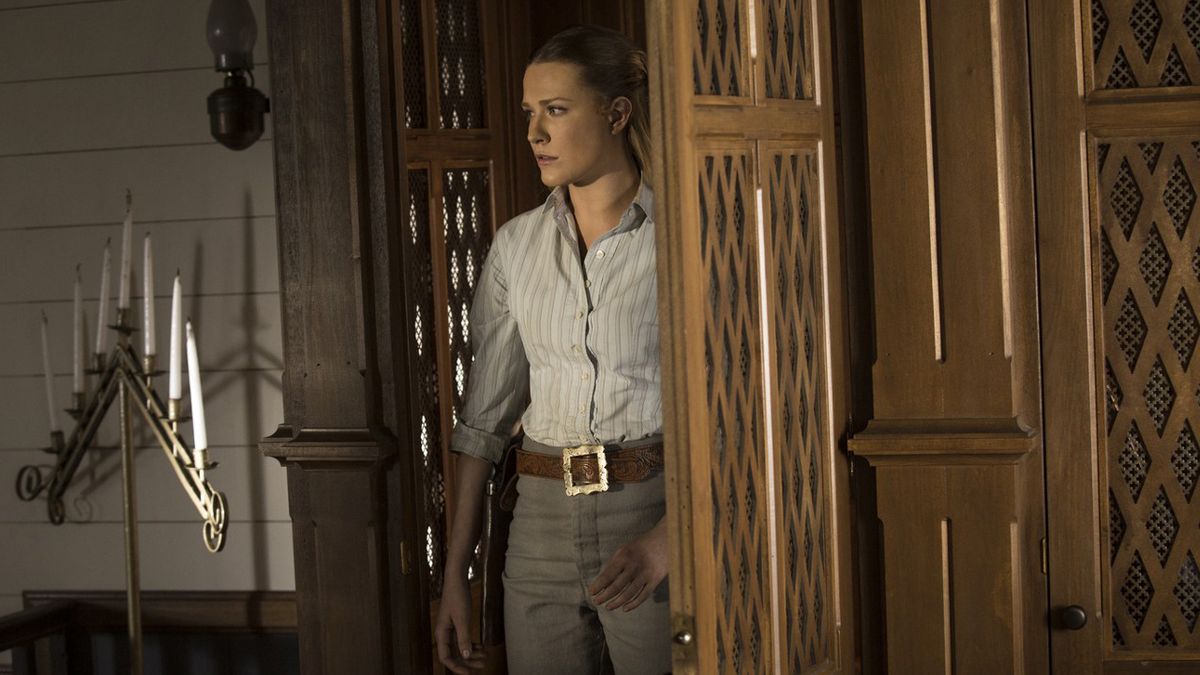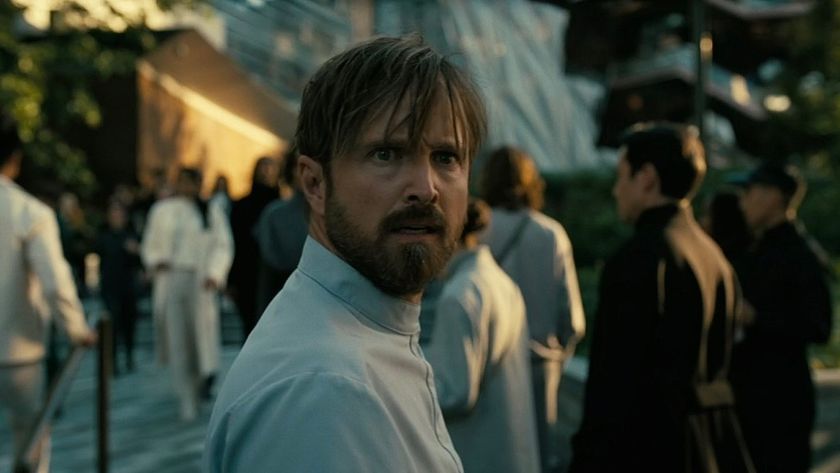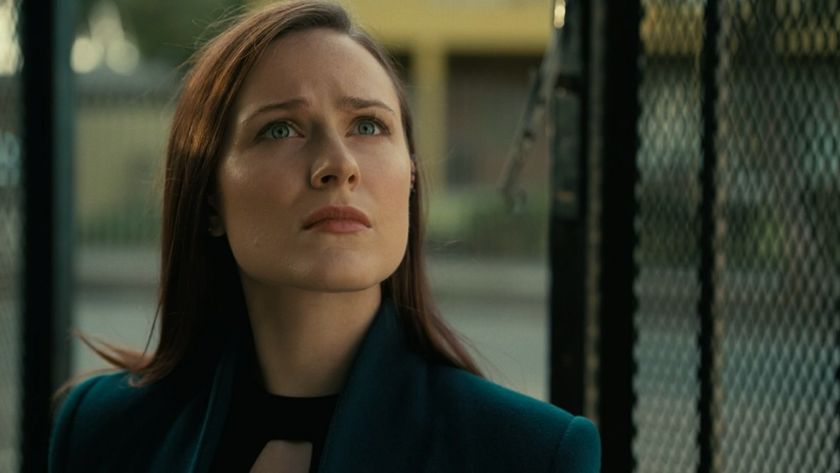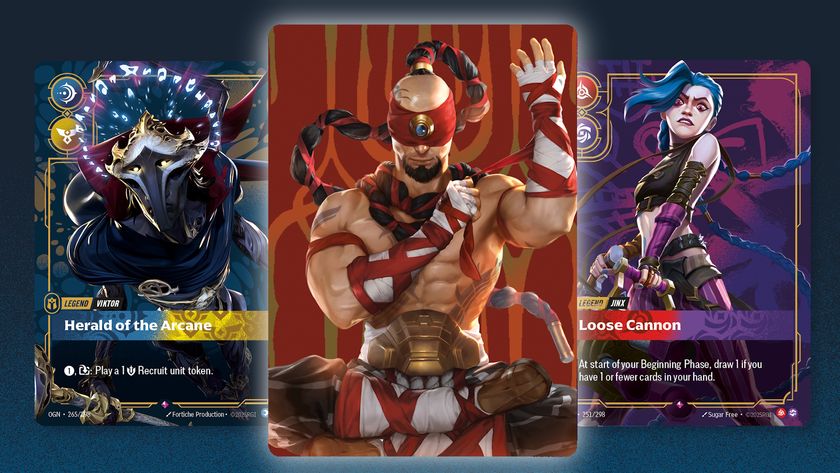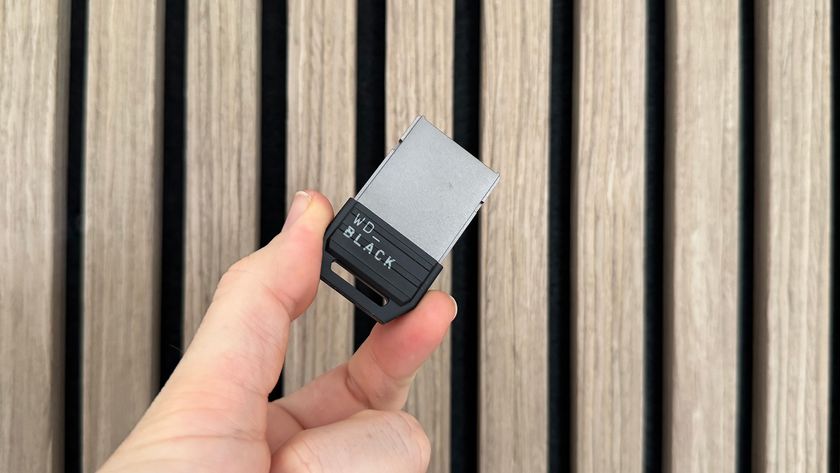12DOVE Verdict
Another smart episode that provides - for once - more answers than questions.
Why you can trust 12DOVE
Westworld has traditionally been a show about questions. Who is Arnold? Is it really ok for humans to treat the Hosts like they do? What’s Ford’s game? Every episode to date has layered question upon question, and for every answer we’ve had, another couple of mysteries seemed to spring up in place. This episode of Westworld is different: it’s one of dark revelations and tragic answers, of confirmations to theories that we’ve been turning over in our minds. While previous episodes have played on the wow factor of plot twists and mind-games to keep us hooked, The Well-Tempered Clavier confirms our speculations and fears with a wonderfully devastating style, setting the scene for next week’s concluding episode. Turns out, it’s just as thrilling getting the answers as it is asking the questions.
It all starts with Maeve (who else?), as she’s questioned by Bernard. Poor Bernard has been reset, his memory wiped, so we feel his panic when he attempts to decommission Maeve, only to have her turn around and control him. This opening scene sets the remainder of the episode in motion, as Maeve sets Bernard free to find the truth of his existence. Again. “If you go looking for the truth, get the whole thing,” she advises. “It’s like a good fuck - half is worse than none at all.” If it weren’t for Ford, Maeve would have the best lines in this show. And almost any other show, for that matter.

Bernard’s initial confrontation with Ford - who he immediately seeks out - sees him on the offensive. While he has accepted the notion that he’s a Host, Bernard wants to know everything - the reason for his creation, and Ford’s end-game for him. Even at this point in the episode, we know that it isn’t going to end well. Bernard makes the same mistake as everyone else in the park, trying to threaten Ford and get the truth from him in a blunt-force way. Lobotomised Clem stands over Ford like a vengeful angel, awaiting the command to pull the trigger if he refuses to cooperate. As with any good piece of TV, though, this is a fake-out designed to make the conclusion that much more shocking.
During the episode we see Bernard learn the truth about his memories. The scene where he realises and accepts that his boy, Charlie, is just a fabrication is heart-breaking, even though it’s something the viewer already knew. But this revelation leads to us making the biggest discovery of the episode: Bernard is Arnold. Or at least, a Host version of Arnold. Not a huge surprise for anyone immersed in Westworld’s fan theories, but a smart twist nonetheless. As ever, the clues are littered throughout the episode before the final reveal is made clear, as Bernard relives some of the key moments from previous meetings with Ford.
Here’s where it gets very interesting, though. Dolores discovers the secret elevator in the church at Escalante, and heads down to the old ‘behind the scenes’ area where Ford and Arnold first started Westworld. On her way to meet Arnold, we see her make the same walk in different outfits, implying that all this has happened before, across multiple timelines… And when she meets Arnold, we hear the words that confirm it. “I can’t help you - why is that, Dolores?” he asks. She replies: “Because you’re dead. Because you’re just a memory. Because I killed you.” Ah, looks like we’ve discovered the reason Ford doesn’t like Dolores; why they’re not friends.
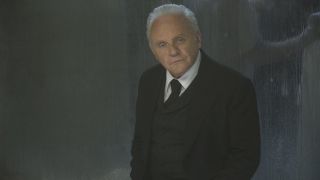
The climax of the episode is classic Westworld, and it ties a knot in Bernard’s tragic plot thread. Having discovered the truth, he no longer wants to work with Ford - and instructs Clem to shoot him. But of course Ford has a back-up plan, and of course Clem can’t shoot him. Deep down, we knew this from the start, because in this show you simply don’t outsmart Ford. The ending, though, still feels shocking, as Bernard is forced to take the pistol from Clem and end his own life as the master manipulator simply walks away, promising the delivery of his bold new storyline. It’s deliciously done. Ford laments the fact Bernard is talking in technical terms, and delivers his self-execution as a colourful narrative, giving us yet another glimpse into his beautifully twisted mind. The delivery of this inevitability is fantastic TV, even if you’re one of the many who saw it coming weeks ago, a storytelling device that Westworld has truly mastered.
Elsewhere in the episode, we see William finally snap. After being forced by Logan to watch Dolores ‘cut open’, her insides (and true nature) exposed, he seems to lose his mind. Faking a make-up with his boss, Billy then takes his opportunity to butcher every Host in camp while Logan is passed out. He tells his tormentor that they’re going to look for Dolores, and “don’t call me Billy.” There’s a sense that William has lost all perspective, and it’s that vaguely obsessive edge that makes him a more interesting character. Hopefully, next week’s episode will explore that mania, instead of just making him a ‘determined hero’.
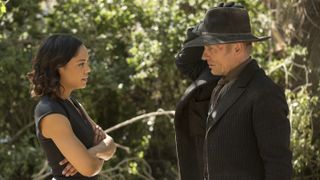
The most compelling part of this ‘William/Logan’ plot is that we see a picture of Logan’s sister, who William is engaged to… funnily enough, it’s the same picture that Dolores’ father discovers at the start of the season, which causes the Hosts to start rebelling. Coincidence? Obviously not, and it’s one of the strongest pieces of evidence for the Two Timelines theory yet. There’s a real theme in Westworld that ‘everything has happened before’, and it’s undoubtedly going to be a large part of the end of season reveal, next week.
Other plotlines are developing, but take relatively minor roles this week. There’s a neat scene where a rogue Host put the Man in Black into an elaborate trap, but it feels more like a clumsy attempt to inject more excitement into this plotline than anything else. However, we do learn that the Man in Black is indeed on the board of Westworld, and that he knows Hale - who shows up to ask for his support in removing Ford. We also find out that Teddy was the one who shot up all the original Hosts in Escalante, and there’s a real suggestion that Wyatt doesn’t actually exist - he’s just Teddy’s psychological construct. To be honest, this is the least compelling of all Westworld’s current plotlines.
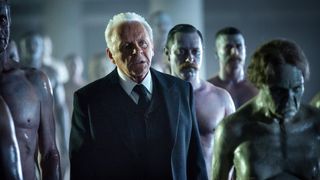
Finally, we see Stubbs lured into a trap in his search for Elsie (who I’m 99% certain was killed by Bernard, but you can never rule a character out of an HBO show until you see their corpse. And even then, Jon Snow…), and Maeve continues to manipulate Hector into helping her escape the park. That sex-scene in the burning tent is hot on multiple levels, but maybe a bit melodramatic for Westworld. Although it has a decent attempt at traditionally dramatic set-pieces, this show is at its best when confounding the viewer with questions and wowing with its narrative revelations - something this episode nails perfectly.
